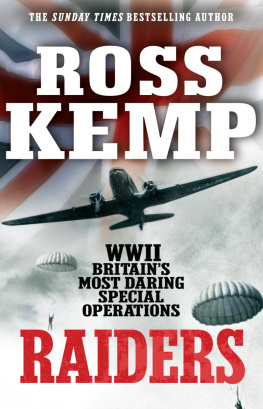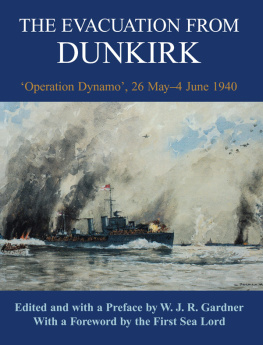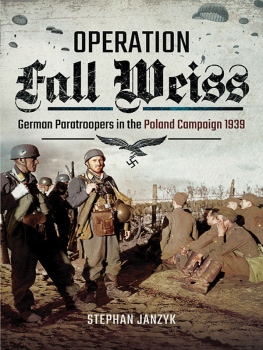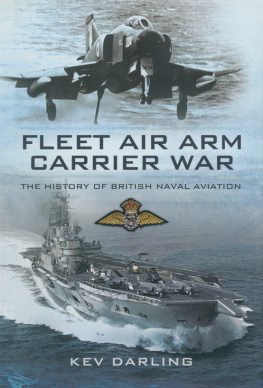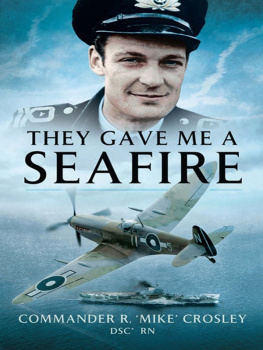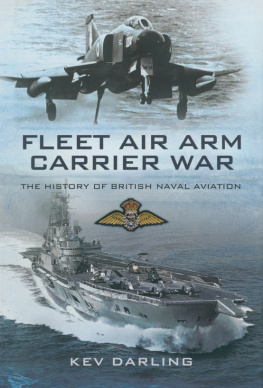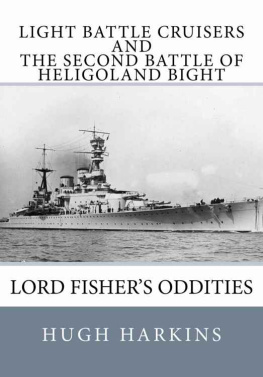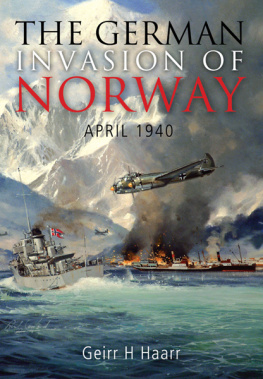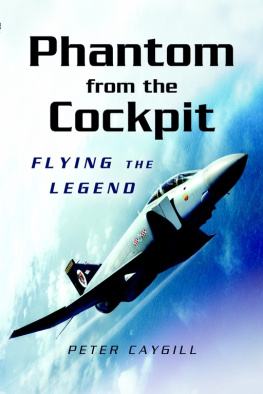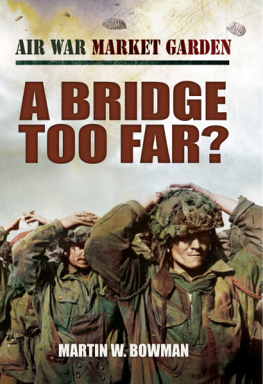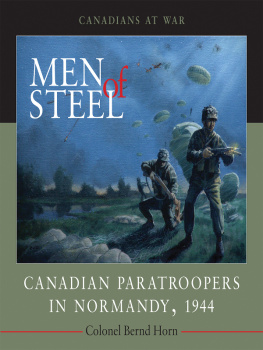Foreword
For the first four years of the Second World War, Britain was in no position to be able to launch a significant offensive against the Axis forces. Fighting over so many fronts, from the North Atlantic to the Far East, her resources and manpower were stretched to the limit. The countrys factories and dockyards were manufacturing warships, tanks, aircraft, weapons and equipment as fast as they could, but it was going to take time to build up, train and re-equip the Allied forces to be strong enough to carry the fight to Germany in a long, concerted campaign. Within days of the Dunkirk evacuation, Prime Minister Churchill, unhappy at the thought of sitting back in a defensive posture for so long, ordered his Chiefs of Staff to come up with ideas for some form of offensive operations against the enemy. It was not in the British Prime Ministers nature to pursue a policy of passive defiance. He wanted to harass Hitlers hordes relentlessly, never letting them settle in the new homes they had acquired for themselves in Western Europe through the Blitzkriegs of 1939 and 1940.
Churchill called for the British to launch a reign of terror against Germany, and he envisaged it being executed in two ways: through a pan-European campaign of sabotage by irregular, covert operatives, and through a series of raids carried out by elite regular troops along the Atlantic Wall. The practical aim of the latter was to force Hitler to strengthen his defences along the western coast of Europe by diverting men and materials urgently required elsewhere. But there was a wider, less tangible purpose, whose dividends could not be calculated in an accounts ledger or a casualty list and Churchill understood it better than anyone: morale. Britains newspapers offered little cheer over the breakfast table at this time. The nations cities were being battered by the Luftwaffe and every day seemed to bring news of a fresh setback from one corner or another of the globe. The sinking mood could only be lifted by the knowledge that there was still some fight left in the country. Even the smallest hit-and-run raid, no more than an irritating distraction to the Nazi war machine, would at least show the British people and the Germans that the war in Europe was not quite decided yet.
How wonderful it would be if the Germans could be made to wonder where they were going to be struck next instead of forcing us to try to wall in the Island and roof it over! Churchill wrote. As a result, the Commandos and airborne troops were brought into existence and the tri-service Combined Operations was established. Thousands of the countrys best fighting men were soon taking part in intensive training courses; specialist weaponry and equipment was rolling out of the factory gates, and audacious plans for hit-and-run assaults were being sketched out in the planning rooms. The British might have been hopelessly ill-prepared for the Second World War, but they certainly made up for their dithering with a colossal national effort. The raiding forces that were launched against the Nazis were the sharp end of that effort and, as the war ground on, the toll they took on the enemy mounted significantly. The British quickly proved themselves to be masters of the raid as well as irregular warfare. The Commandos caused so much trouble that Hitler issued his famous order: if captured, Britains elite troops were to be summarily executed, even if they were wearing uniform and had tried to surrender.
Four of the six chapters in

